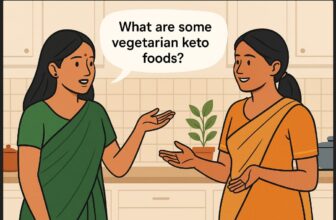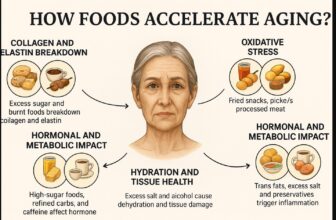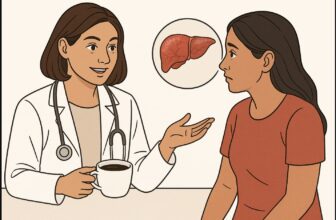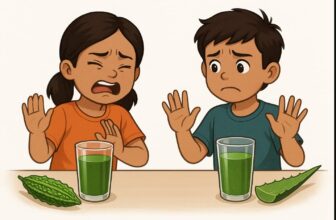Iron deficiency is a prevalent issue in India, particularly among those following a vegetarian diet. Iron is essential for the production of hemoglobin, which helps carry oxygen through the bloodstream. Without adequate iron, the body cannot function properly, leading to various health problems. This article explores how vegetarians can avoid iron deficiency, what to do when their iron levels are low, and how low iron affects overall health, backed by scientific evidence.
Iron-Rich Foods: 4 Easy Ways to Boost Your Iron on a Vegetarian Diet:
Why is Iron Important for the Body?
Iron is a crucial mineral for the body. It is a component of hemoglobin, a protein in red blood cells that carries oxygen from the lungs to tissues throughout the body. Iron is also necessary for the synthesis of neurotransmitters, DNA, and energy production. Without enough iron, the body becomes inefficient at delivering oxygen to its organs and tissues, leading to fatigue and other health issues.
Scientific Evidence:
- According to the World Health Organization (WHO), iron deficiency is the most common nutritional deficiency worldwide and a leading cause of anemia (WHO, 2011).
- The National Institute of Health (NIH) states that iron is required for optimal cognitive function and a healthy immune system (NIH, 2020).
How Iron Deficiency Affects Overall Health
Iron deficiency can cause a range of health issues, especially when it leads to anemia. The body’s inability to carry sufficient oxygen results in fatigue, weakness, and decreased ability to concentrate. Other symptoms of iron deficiency include pale skin, shortness of breath, and dizziness.
Scientific Evidence:
- A study published in the American Journal of Clinical Nutrition found that iron deficiency anemia can impair cognitive function, leading to difficulty with memory and concentration, particularly in children and the elderly (Beard, 2001).
- Research from the European Journal of Clinical Nutrition links low iron levels with weakened immune function, making the body more susceptible to infections (Raj, 2012).
- Low iron also affects energy levels. According to the American Society of Hematology, individuals with iron deficiency experience chronic fatigue, weakness, and decreased physical endurance (Hematology, 2018).
How to Avoid Iron Deficiency with a Vegetarian Diet
For those following a vegetarian diet, iron deficiency can be a concern due to the lower absorption rates of non-heme iron (the type of iron found in plants) compared to heme iron (found in animal products). However, vegetarians can still meet their iron requirements with careful dietary choices.
1. Include Iron-Rich Vegetarian Foods
Many vegetarian foods are excellent sources of iron. While non-heme iron is not absorbed as efficiently as heme iron, you can still boost your intake through the following foods:
- Leafy Green Vegetables: Spinach, fenugreek (methi), mustard greens, and kale are rich in iron. For example, 100 grams of spinach provides about 3.6 mg of iron (USDA, 2019).
- Legumes and Pulses: Lentils, chickpeas, kidney beans, and soybeans are good sources of iron. A 1-cup serving of cooked lentils contains about 6.6 mg of iron (USDA, 2019).
- Seeds and Nuts: Pumpkin seeds, sesame seeds (til), sunflower seeds, and cashews are high in iron. For example, 100 grams of sesame seeds contain about 14.6 mg of iron (USDA, 2019).
- Whole Grains: Brown rice, quinoa, and oats are rich in iron. A cup of cooked quinoa provides approximately 2.8 mg of iron (USDA, 2019).
- Fruits: Dried fruits like raisins, apricots, and dates, along with vitamin C-rich fruits like oranges, guavas, and papayas, help increase iron absorption.
Scientific Evidence:
- A study published in the Journal of Nutrition found that consuming legumes and pulses can significantly contribute to daily iron intake and help reduce the risk of iron deficiency anemia (Hallberg, 1992).
- According to the American Journal of Clinical Nutrition, iron absorption from plant-based sources can be enhanced by consuming foods high in vitamin C, such as citrus fruits (Murray-Kolb, 2003).
2. Pair Iron-Rich Foods with Vitamin C
Vitamin C plays a crucial role in enhancing the absorption of non-heme iron from plant-based sources. Pairing iron-rich foods with vitamin C can significantly improve iron uptake.
Scientific Evidence:
- Research published in The American Journal of Clinical Nutrition shows that vitamin C can increase non-heme iron absorption by up to four times (Hallberg, 1987).
- A study in Nutrients (2016) confirmed that combining vitamin C-rich foods with iron-rich plant foods helps mitigate the poor absorption rates of non-heme iron.
3. Avoid Iron Blockers
Certain substances, such as tea, coffee, and calcium-rich foods, can inhibit iron absorption. Therefore, it’s important to consume these separately from iron-rich meals.
Scientific Evidence:
- A study in The American Journal of Clinical Nutrition found that tannins in tea can reduce iron absorption by up to 60% (Cook, 1999).
- Research from The Journal of Nutrition highlights that calcium competes with iron for absorption in the gut, and consuming them together may reduce iron absorption (Haug, 1996).
4. Cook in Cast Iron Pots
Cooking in cast iron cookware can increase the iron content of food. When acidic foods like tomatoes are prepared in cast iron, they absorb iron from the cookware, which is especially beneficial for those with low iron levels.
Scientific Evidence:
- According to a study in the Journal of the American Dietetic Association, cooking in cast iron pots can increase the iron content of food, particularly for acidic foods like tomatoes (Lau, 2008).
What to Do When Your Iron Levels Are Low
If you suspect that your iron levels are low, here are some steps to take:
1. Get Tested
The first step is to get a blood test to check your hemoglobin and ferritin levels. A doctor can confirm if you are iron-deficient and how severe the deficiency is.
2. Increase Iron-Rich Foods
Increase your intake of iron-rich foods as outlined above. Be mindful of combining them with vitamin C to enhance absorption.
3. Consider Iron Supplements (Under Medical Supervision)
If your iron levels are severely low, iron supplements may be necessary. It is important to take supplements only under the guidance of a healthcare provider, as excess iron can lead to toxicity.
Scientific Evidence:
- According to the World Health Organization, iron supplementation is recommended for individuals with diagnosed iron deficiency anemia, particularly during pregnancy and for those with significant blood loss (WHO, 2001).
4. Monitor Your Progress
After following an iron-rich diet or taking supplements, it’s essential to have your iron levels rechecked in a few months to ensure they are improving.
In Summary
Iron deficiency is a common issue, particularly for vegetarians, but it can be prevented and managed with a balanced diet rich in iron-containing plant foods. By pairing iron-rich foods with vitamin C and avoiding iron blockers, you can enhance your body’s iron absorption and prevent deficiency. If you experience symptoms of low iron, consult with a healthcare provider and consider increasing your iron intake through food or supplements. Maintaining adequate iron levels is crucial for overall health, energy, and cognitive function.
References:
- Beard, J. L. (2001). Iron deficiency and cognitive function. The Journal of Nutrition, 131(2), 681S-684S.
- Cook, J. D., et al. (1999). The effect of tea and other inhibitors on iron absorption. The American Journal of Clinical Nutrition, 69(1), 7-10.
- Hallberg, L. (1992). Iron absorption and its regulation. The American Journal of Clinical Nutrition, 56(1), 16-22.
- Hallberg, L., et al. (1987). The influence of ascorbic acid on iron absorption. The American Journal of Clinical Nutrition, 45(2), 267-273.
- Haug, W., et al. (1996). Effect of calcium on iron absorption from a vegetarian meal. The Journal of Nutrition, 126(3), 581-585.
- Lau, E. S. (2008). The impact of cooking with cast iron on dietary iron intake. Journal of the American Dietetic Association, 108(7), 1150-1153.
- Murray-Kolb, L. E., et al. (2003). Vitamin C and iron absorption: A review. Nutrition Reviews, 61(8), 299-305.
- National Institutes of Health. (2020). Iron. National Institute of Health. Link
- Raj, S. (2012). Iron deficiency and its implications on health. European Journal of Clinical Nutrition, 66(6), 610-616.
- WHO (2001). Iron deficiency anaemia: Assessment, prevention, and control. A guide for programme managers. World Health Organization.
- WHO (2011). The World Health Report: Iron Deficiency. World Health Organization.





